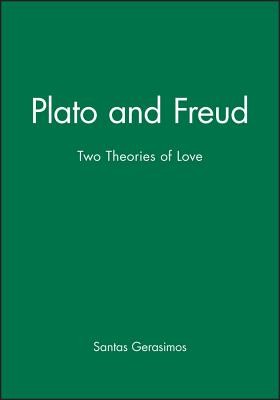
- Išsiųsime per 12–18 d.d.
- Autorius: Gerasimos Xenophon Santas
- Leidėjas: Blackwell Publishers
- ISBN-10: 0631159142
- ISBN-13: 9780631159148
- Formatas: 16.1 x 23.6 x 2 cm, kieti viršeliai
- Kalba: Anglų
- Extra -15 % nuolaida šiai knygai su kodu: ENG15
Atsiliepimai
Aprašymas
What is love? Why do we idealize those whom we love? How do we choose whom to love? Are some kinds of love better than others? Each age returns to these questions with renewed perplexity. Gerasimos Santas examinees the two greatest theoretical architectures of love, side by side. It provides a thorough critical description and comparison of these theories, allowing a sophisticated dialogue to emerge between the two thinkers.
In the first half of the book Professor Santas reconstructs and explains Plato's theories of eros and philia: erotic love, familial love and friendship. He attempt to show that Plato's was a unified theory in which erotic love has a special connecion with creativity and beauty. He then discusses Freud's notion of love as distinct from, though based on, his general theory of sexuality. He discusses in detail Freud's explanations, before and after narcissism, of idealization and choice of beloved. Freud too, it emerges, had a unified theory of love: all love has its origins in the libidinal instincts of infancy and childhood.
The book concludes by showing that, despite Freud's claim that his theory of love is 'Platonic', the two theories are instructively different.
EXTRA 15 % nuolaida su kodu: ENG15
Akcija baigiasi už 3d.07:08:48
Nuolaidos kodas galioja perkant nuo 10 €. Nuolaidos nesumuojamos.

- Autorius: Gerasimos Xenophon Santas
- Leidėjas: Blackwell Publishers
- ISBN-10: 0631159142
- ISBN-13: 9780631159148
- Formatas: 16.1 x 23.6 x 2 cm, kieti viršeliai
- Kalba: Anglų Anglų
What is love? Why do we idealize those whom we love? How do we choose whom to love? Are some kinds of love better than others? Each age returns to these questions with renewed perplexity. Gerasimos Santas examinees the two greatest theoretical architectures of love, side by side. It provides a thorough critical description and comparison of these theories, allowing a sophisticated dialogue to emerge between the two thinkers.
In the first half of the book Professor Santas reconstructs and explains Plato's theories of eros and philia: erotic love, familial love and friendship. He attempt to show that Plato's was a unified theory in which erotic love has a special connecion with creativity and beauty. He then discusses Freud's notion of love as distinct from, though based on, his general theory of sexuality. He discusses in detail Freud's explanations, before and after narcissism, of idealization and choice of beloved. Freud too, it emerges, had a unified theory of love: all love has its origins in the libidinal instincts of infancy and childhood.
The book concludes by showing that, despite Freud's claim that his theory of love is 'Platonic', the two theories are instructively different.


Atsiliepimai